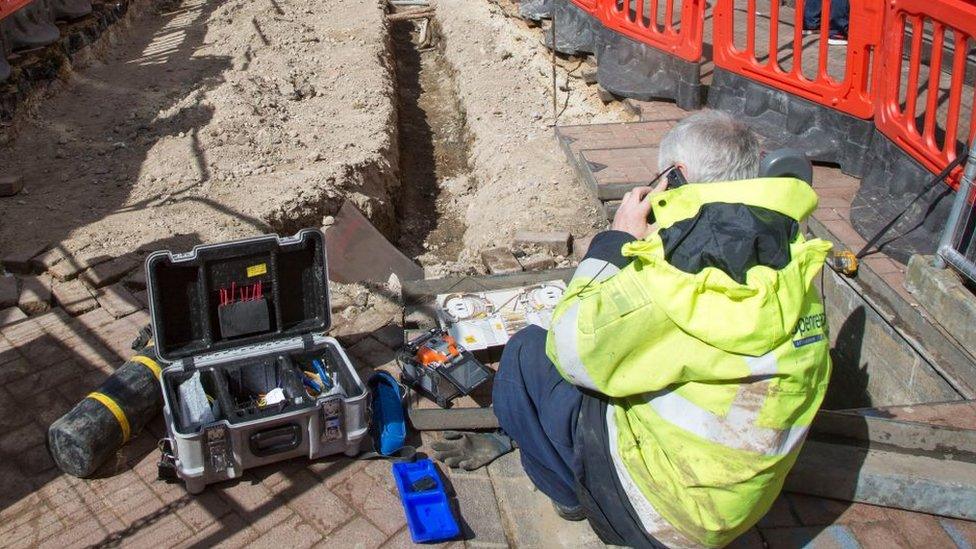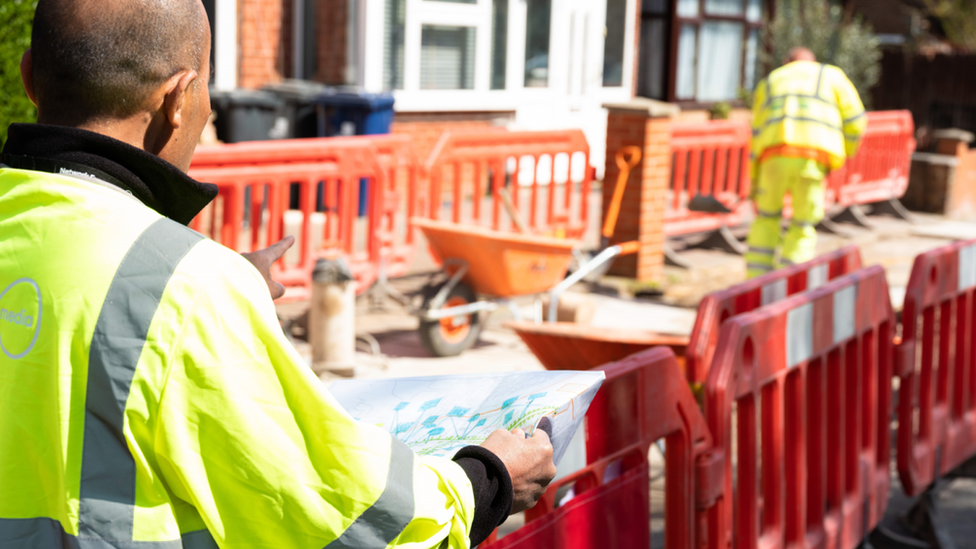MPs doubt government will meet 1Gbps broadband target
- Published

MPs are unconvinced the government will meet its target to make 1Gbps broadband available to 85% of the country by 2025.
There was no detailed plan for remote areas commercial providers will not cover, the Public Accounts Committee said.
The government scaled back a plan for nationwide coverage by 2025, two years ago.
But it says coverage has increased rapidly.
Current needs
"We are investing £5bn so hard-to-reach areas can get [1Gbps] speeds, have already upgraded 600,000 premises - and in three years, national coverage has rocketed from 6% to 65%," the Department of Culture Media and Sport (DCMS) said.
"Our policies and investment also mean 97% of premises can access superfast broadband which meets people's current needs and helped us through the pandemic."
Superfast broadband has a download speed of at least 30Mbps, while 1Gbps is fast enough to download a film in seconds.
For many people, the rise of home-working and reliance on online services and entertainment has made fast broadband vitally important.
In November, a survey of 294 estate agents across the UK indicated a fast internet connection was one of the most important factors for homebuyers.
Hardest-to-reach areas
The Public Accounts Committee acknowledged access to 1Gbps broadband had rapidly increased last year but said this was largely because Virgin Media O2 had upgraded its cable network.
MPs said the DCMS "has made little tangible progress in delivering internet connectivity beyond that achieved by the private sector".
And a goal of full coverage by 2030 "does not cover the very hardest-to-reach areas, which include around 134,000 premises".
Meg Hillier, who chairs the committee, said ministers "can't rely on the private sector to get fast broadband to the hardest-to-reach, excluded and rural areas - and despite its repeated promises to do exactly that, we are apparently little nearer to closing 'the great digital divide' developing across the UK nor addressing the social and economic inequality it brings with it".
The Local Government Association, which represents local authorities, said: "We are concerned there is no detailed plan in place to ensure those in the very hardest to reach areas are not left behind."
It called for "more funding to support telecommunication providers to deliver improvements on the ground".
- Published7 December 2021

- Published29 October 2021
